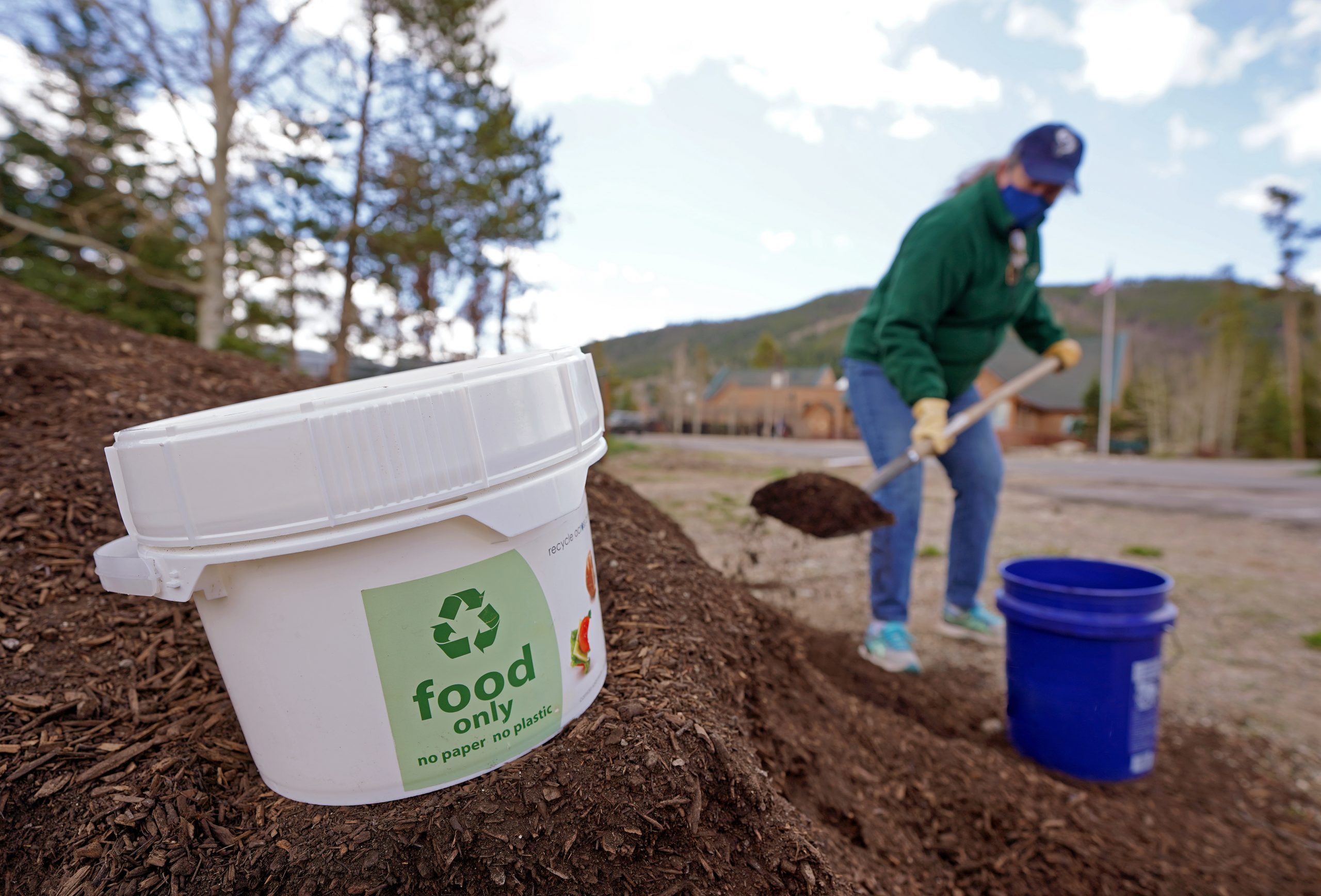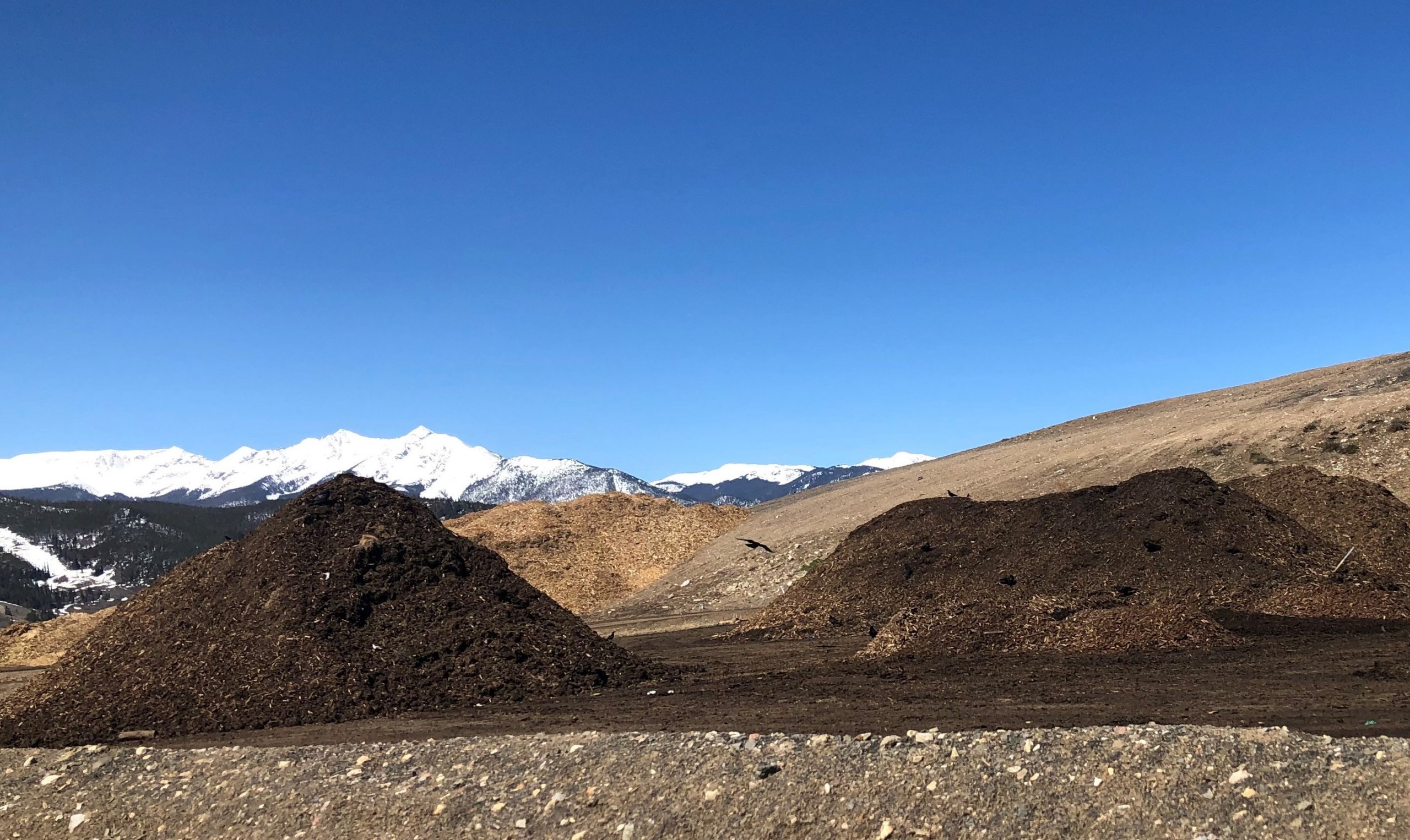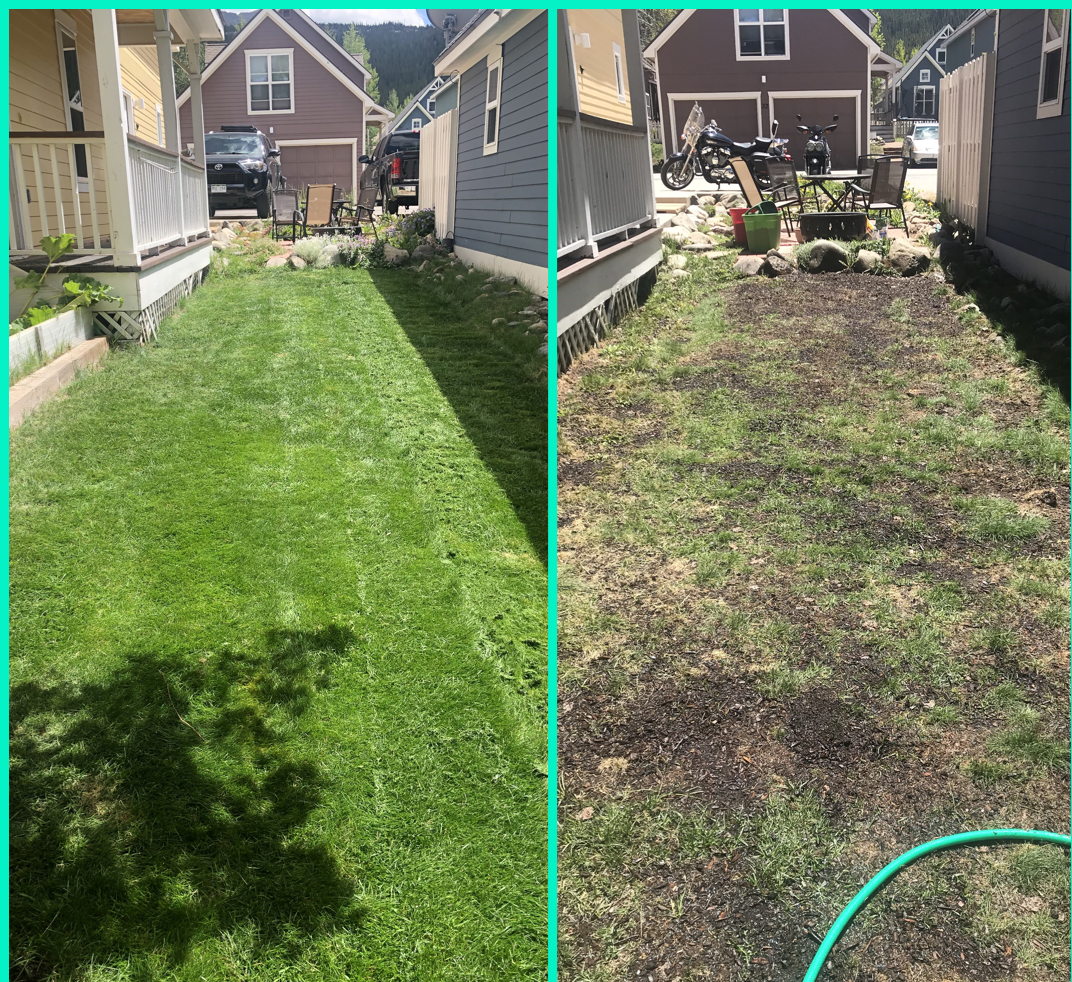
- Vitalii Homon
- June 7, 2021
- Ask Eartha
Dear Eartha, I recently bought compost from SCRAP for my flower beds. Is it safe to put in my herb garden, too? What’s the environmental benefit of using this instead of commercially bought compost?
Double kudos to you – first for giving your flowers an added boost, and second for going local. The High Country Compost produced at the Summit County Resource Allocation Park (SCRAP) is the highest grade of compost governed by the Environmental Protection Agency, meaning it’s approved for all uses including herbs and vegetables.
SCRAP also chooses to certify their product through the United States Composting Council’s Seal of Testing Assurance (STA), which has strict testing requirements. In short – you got the good stuff. Before we dig deeper, let’s take a look at how composting works at 9,000 feet.
A primer on High Country Compost
In the mid-2000s, the SCRAP staff saw a glut of dead trees from the pine beetle epidemic. While all this wood waste, called slash, was being put to use on-site, staff got creative and in 2008 created a large-scale composting program. That compost is made from slash, food scraps, and biosolids, the organic matter recovered from the wastewater treatment process. These organic materials – all sourced locally – are combined on a large flat surface, where it is mixed into huge piles called windrows.

Windrows provide the ideal environment for speeding up Mother Nature’s decomposition process. In just 13 weeks, those windrows heat up, the materials decompose, and compost is created. SCRAP staff have the never-ending job of building new windrows, mixing the windrows in various stages of decomposition, monitoring temperatures, filtering out (screening) larger pieces of wood chips, and sending finished compost for testing.
Thanks to the extensive STA testing requirements, you can rest assured that High Country Compost is not only safe, it’s highly beneficial for flower beds, vegetable gardens, lawns, and even potted plants.
Store vs. SCRAP
As you can imagine, bagged compost sold in stores is produced hundreds or even one thousand miles away and is trucked to the Rocky Mountains. When using High Country Compost, transportation emissions are dramatically reduced. After all, travel from the SCRAP to the furthest reaches of Summit County is just 23 miles.
According to the Colorado State University Extension’s Master Gardener curriculum, material sold in stores as compost could be at any stage of decomposition. The training states that unfinished compost can have high ammonia content, which could burn plant roots. Another concern? Unfinished compost can consume oxygen from a plant’s root zone and inhibit root growth.
Rigorous testing of High Country Compost shows that it’s not only finished, it has low salts meaning that you can double the amount of compost used and still have vigorous plant growth.
When you purchase SCRAP’s product, you’re supporting the reduction of local emissions from rotting food. And of course, local compost keeps – literally – tons of waste out of the landfill. I don’t know of any store-bought composts that can make that claim.
Half inch or quarter-inch?

When you purchased compost at the SCRAP, you likely noticed two different options: half inch and quarter inch. Quarter-inch is filtered through a smaller screen to create a finer product, one in which the largest pieces are roughly – you guessed it – a quarter of an inch. Both products improve the soil by increasing the organic content (which increases moisture retention) while reducing the need for fertilizers.
Quarter-inch compost is perfect for sprinkling on lawns. It’s called a topdressing because you put it right on top of your grass. The traditional half-inch can be used as a mulch. It’s ideal for amending vegetable and flower gardens, planting trees and perennials, and sprinkling into potted houseplants. The SCRAP offers a detailed how-to guide at SummitCountyCo.gov/232/Compost.
Compost is sold Monday through Friday from 7:00 a.m. to 3:30 p.m., and on Saturdays for residents from 7:00 a.m. to 11:30 a.m. Large bags cost $5 for the half-inch and $8 for quarter-inch. A cubic yard (BYO pickup truck and tarp to cover) is just $19 for the half-inch and $29 for the quarter-inch. Finally, if you’re not already, join 1,800 other residents recycling their food scraps at one of three local recycling centers. Visit HighCountryConservation.org to learn more.
